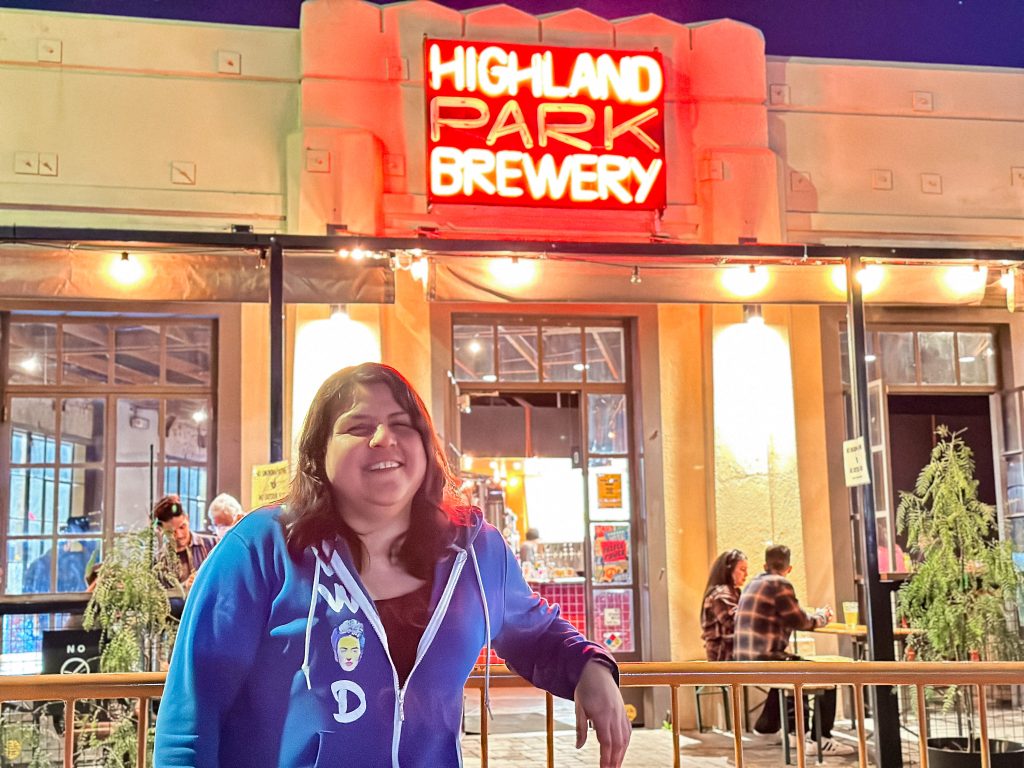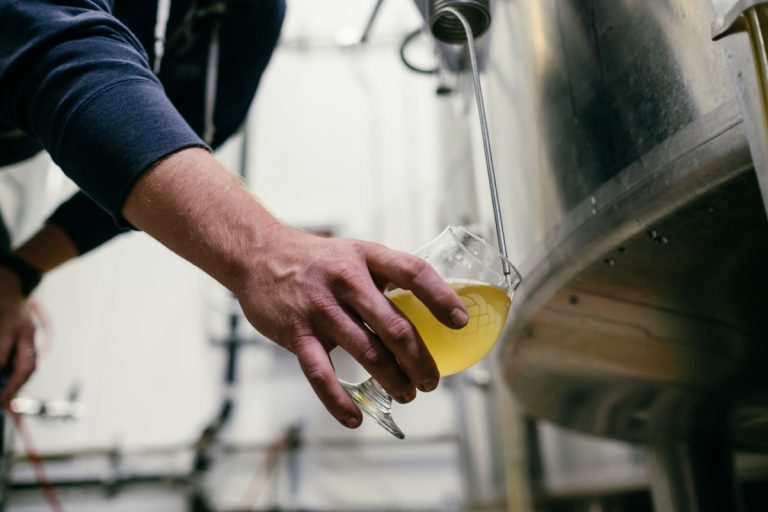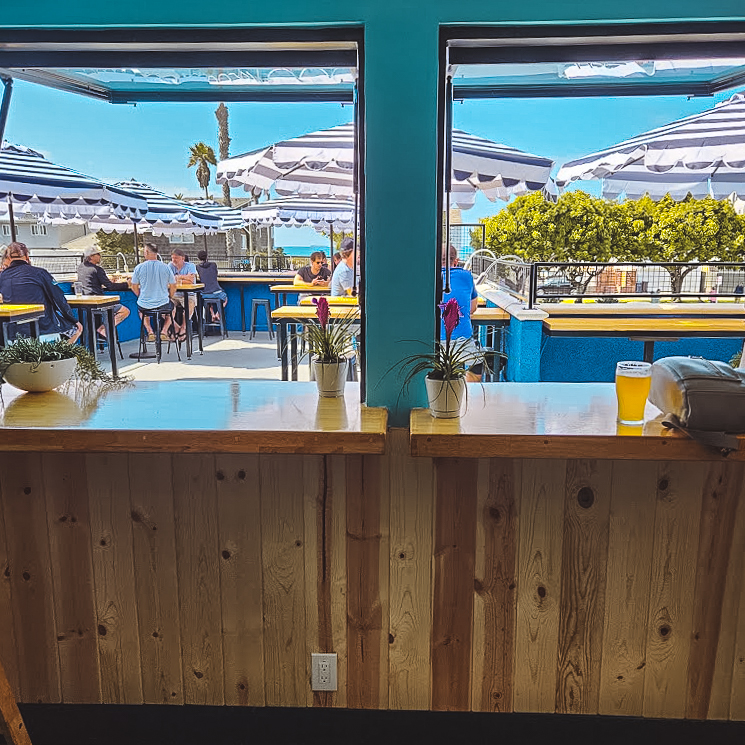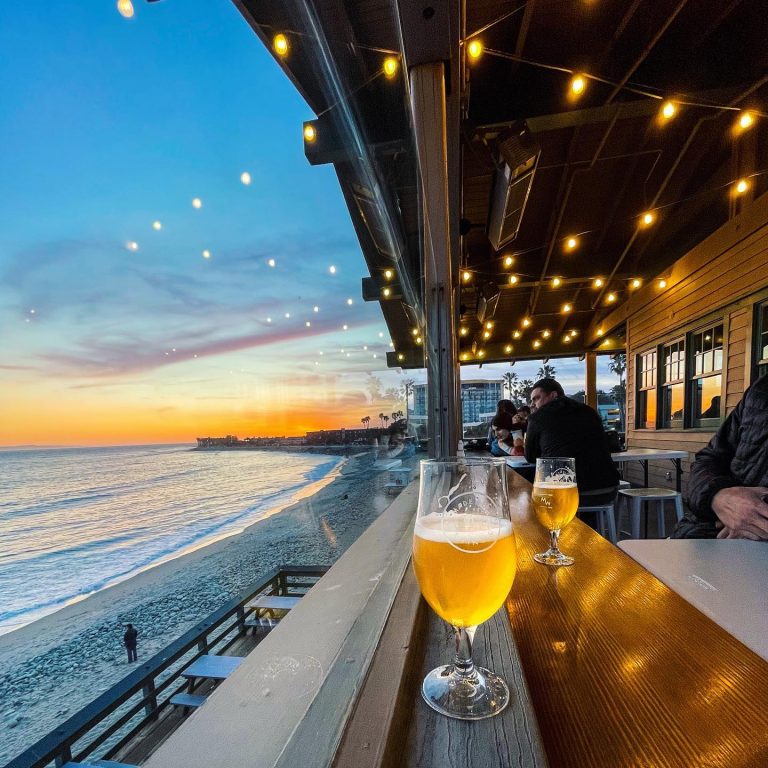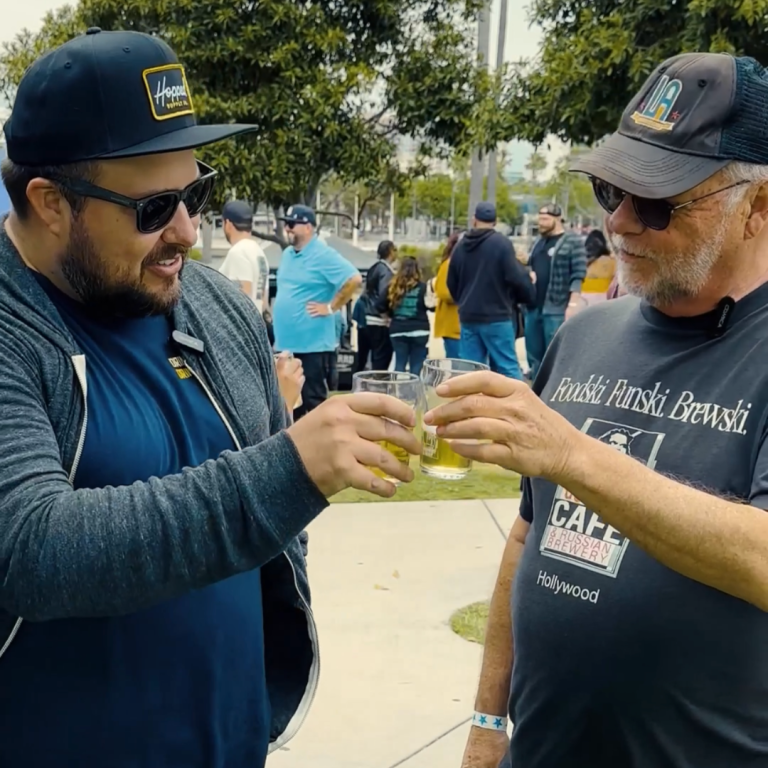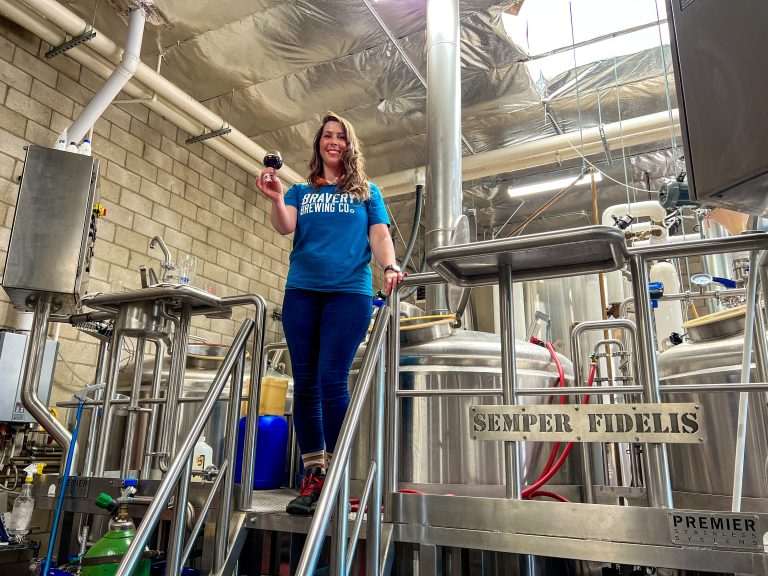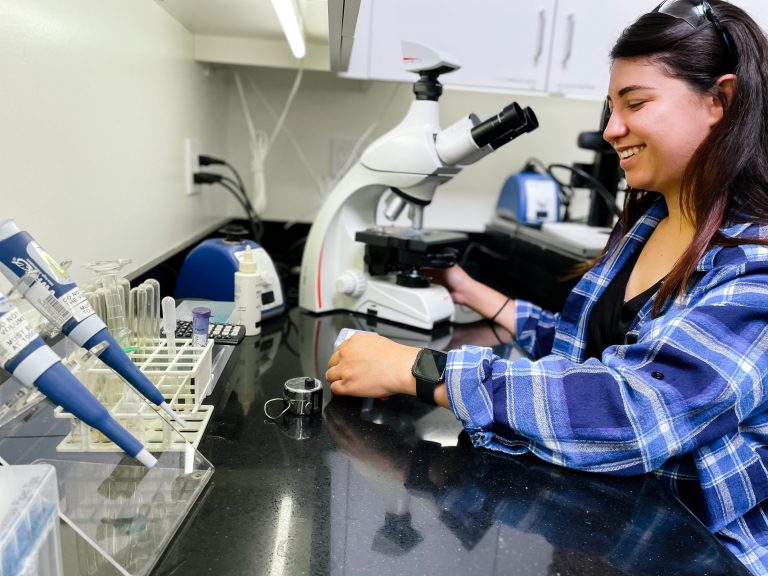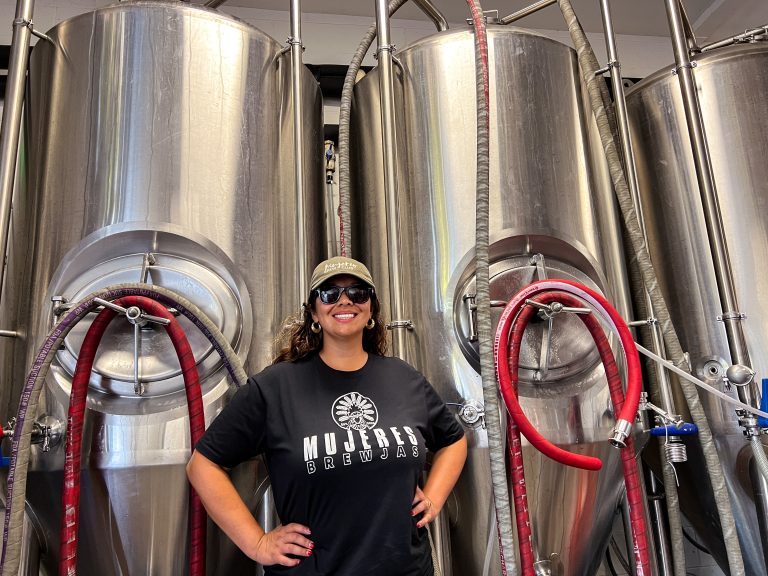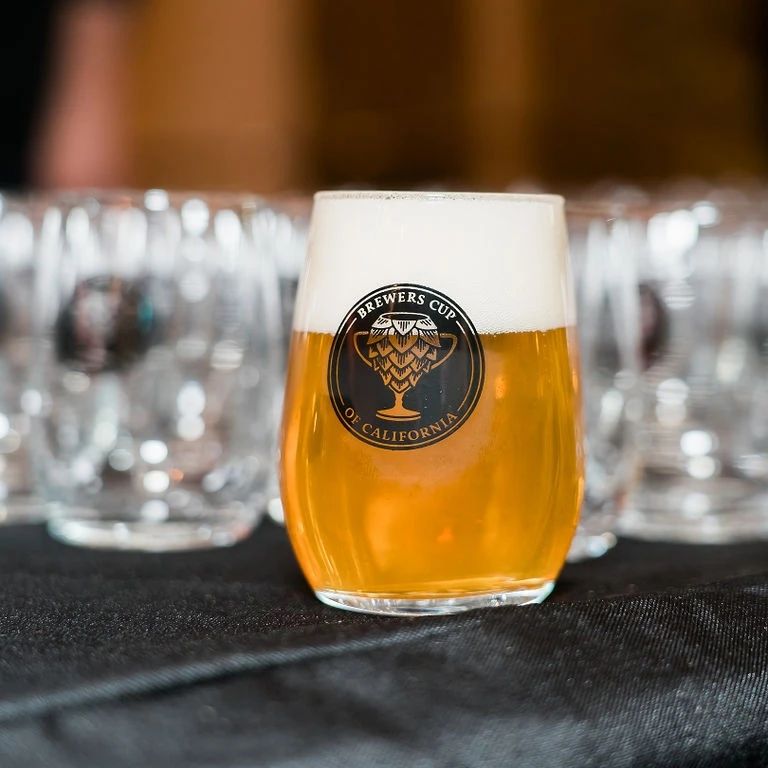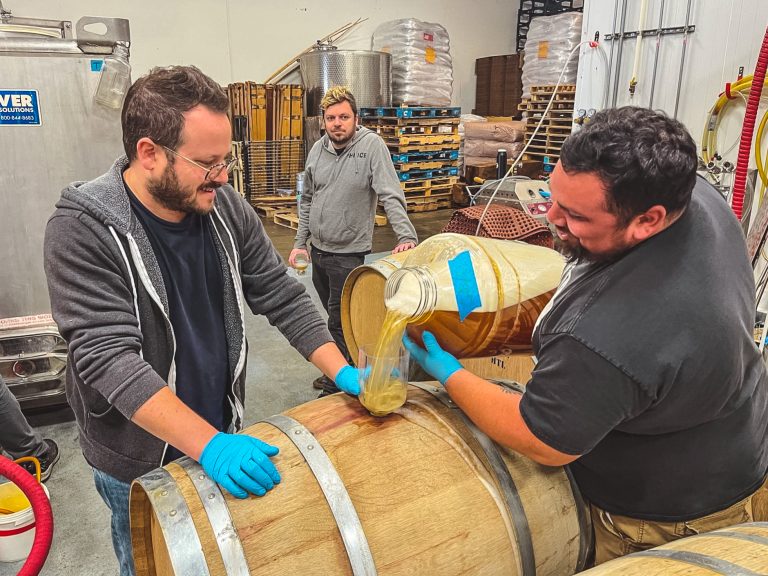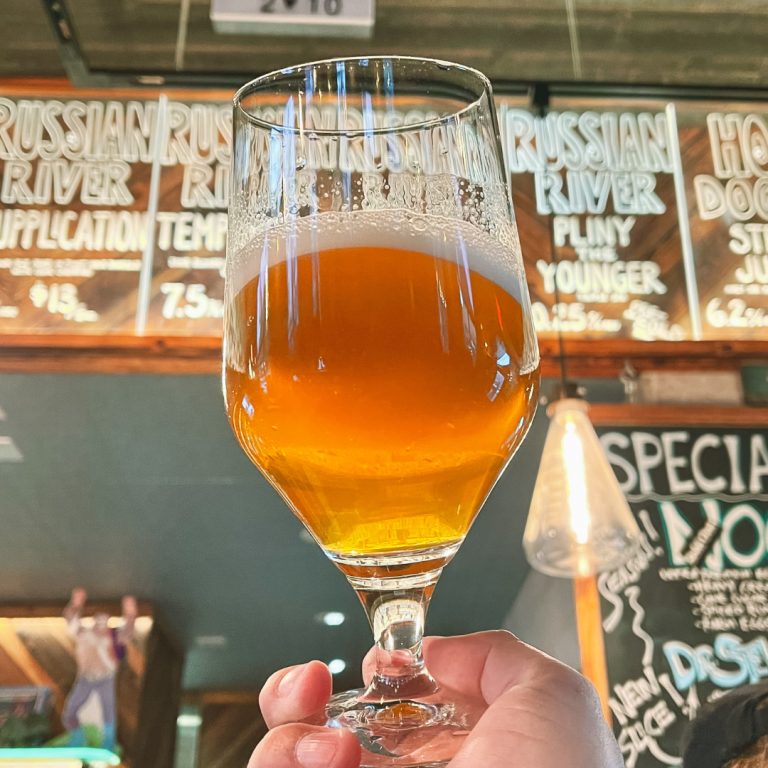We met Blanca Quintero inside Highland Park Brewery’s storied Chinatown taproom and brewing facility, where she serves as Assistant General Manager. Throughout her career, Blanca has been progressively taking the movement for more diversity, equity, and inclusion into her own hands. Now, she does it all at the helm of Pink Boots National, while still focusing on local work, and even bringing it international. Hopped sat down to talk to her ahead of the Pink Boots CollaBrew Festival to learn how her passion for beer intertwined with pushing for the necessary changes in the industry.
This interview has been lightly edited for clarity and length. As told to Mark Smolyar and Cambria Findley-Grubb for Hopped.
HOPPED: How did you get started in beer?
BLANCA: I was a beer geek for a very long time and would go to beer events. I had met the owner of Stone at a beer festival at Blue Palms and then applied for a job there. I got my foot in the door at their Pasadena tasting room. Then I went on to Firestone Walker after three years, and after four years I ended up at Highland Park Brewery.
But even before that, in 2011, I started doing Lady Beer Tastings with my friends. We did one at Beachwood and Blue Palms where we reached out to them and they helped us host an event. We would have our friends come, do a tasting sheet, and go through how to taste beer and recognize ingredients. It was still a learning process for me. That’s when I realized I really wanted to know more about beer. And then when I landed a tasting room job, I went on to get my Certified Cicerone. It was really passionate beer geekery that led me to pursue it as a career, and I have been in it for over ten years now.
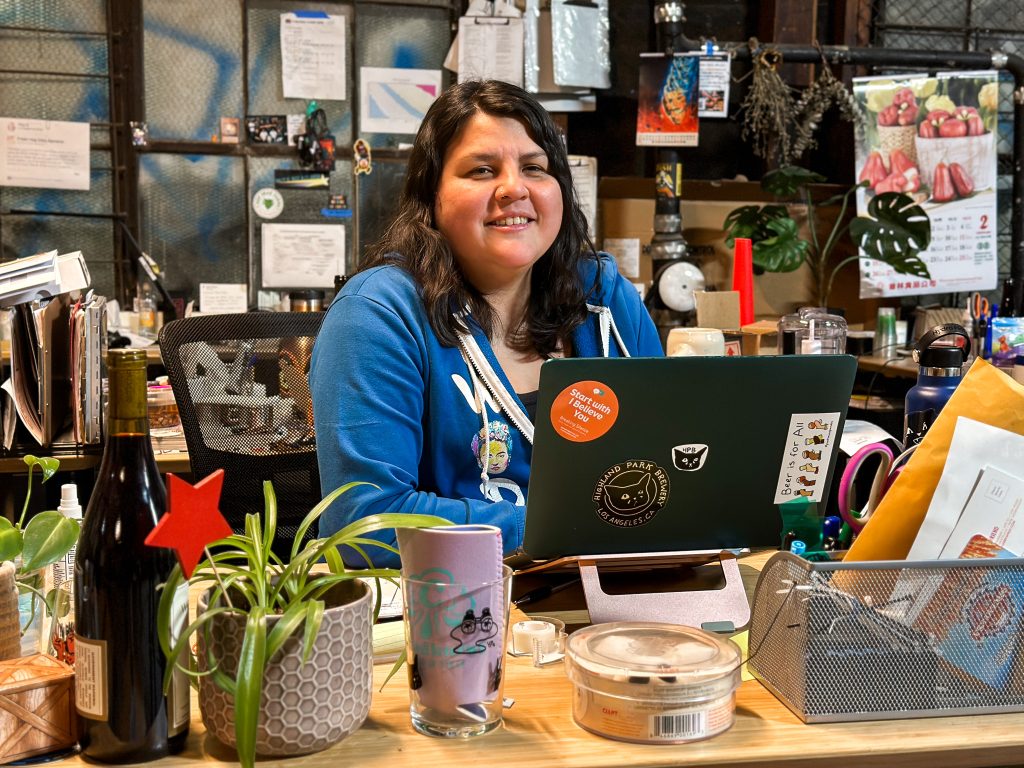
HOPPED: So what’s your official job title?
BLANCA: I have two job titles. I was hired as the Assistant General Manager, but I started here during COVID. Since our taproom wasn’t officially open, I started working on education and team development as the Team Development Manager. So I’m in charge of training for the staff, but also in charge of the taproom.
HOPPED: What type of education do you do for the staff?
BLANCA: I developed our beer school, which is essentially a series of videos developed in conjunction with the brewers to educate our staff about the brewing process, our beers, off-flavors, and draft maintenance. I did something similar at Firestone Walker to develop a training program about beer specifically. I pull a lot of resources from the hospitality industry, like learning to be a better leader and trying to build a team environment.
Then I combined those resources with our beer library. I combed through all the beer books that were here from [Highland Park Brewery owner] Bob [Kunz], and then other people brought in more books. We have a two-shelf library in the offices where people can just check out a book if they want to learn more. It’s anywhere from tasting beer to technical brewery manuals.
HOPPED: What did you take from being a woman in the beer industry just starting out?
BLANCA: Even before I worked in beer I would go to beer festivals with my lady friends who are also Latinas, and people would ask, “Where is your boyfriend? Where is your husband? Why are you here?” It’s a weird thing to ask. We are all here for the same thing. We did make a lot of friends though and some still come to the taproom that I met earlier on at festivals and events. But even then there were breweries like Lady Face where there used to be lady tastings, and I met other women that were super into beer. There were these very small women-in-beer specific events, and I went to those to try and be a part of it. I was seeing a need for more women in beer without realizing that was what I was doing by participating in these types of events and making my own.
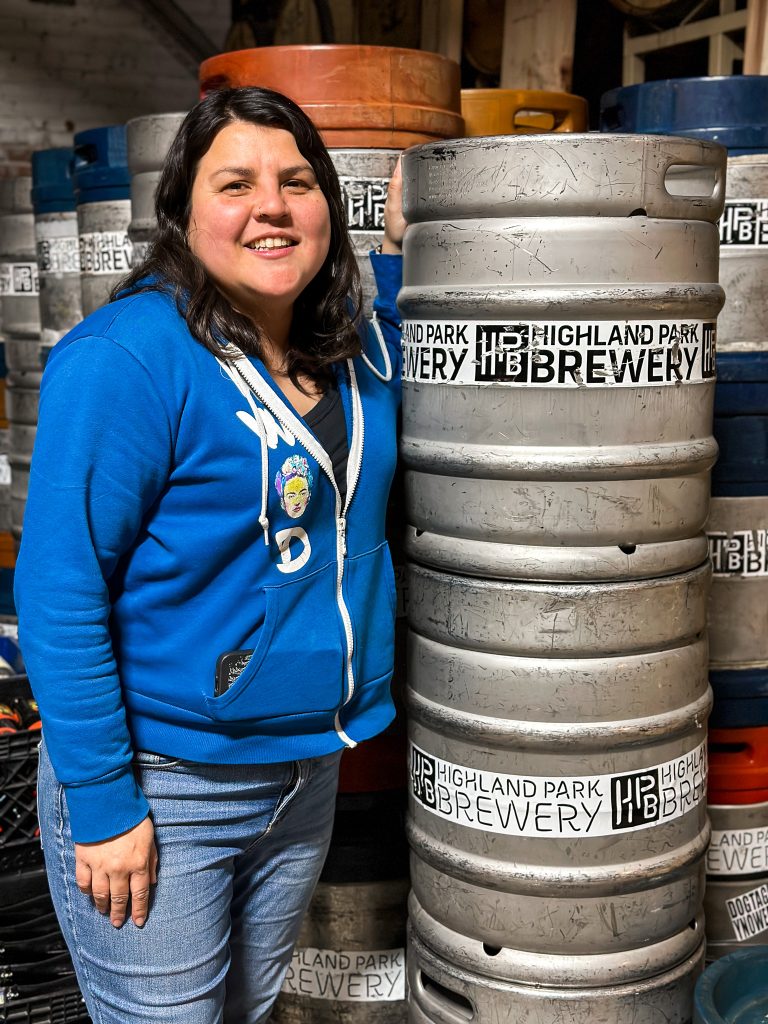
HOPPED: Have you seen a change in terms of the demographics of beer since you first started?
BLANCA: Absolutely. Working at Stone in Pasadena I realized how diverse beer was because we were in a touristy place, and I realized that beer festivals really weren’t showing you the day-to-day consumer of beer. Over time I have seen more and more women, and some days at Highland Park I will walk around and see half, if not more, women just hanging around drinking. There have been women’s crafting groups here, and other women-centric groups. And it isn’t just women’s representation. I have seen more LGBTQ+ and other minorities being represented in beer. There is definitely a huge difference from when I first started.
HOPPED: How did you first get involved in Pink Boots Society?
BLANCA: I found out about Pink Boots when I started working at Stone. At the time, I believe LA and San Diego were part of one giant chapter. Over time the chapter split and the LA half went more dormant.
When I was working at Firestone we did a Pink Boots brew in 2017 and 2018, and Sue Rigler, who was in charge of Pink Boots came by, and I remember her telling me I should really restart the LA chapter. I was thinking about it but I didn’t know anyone who was really a part of it. So I basically took it upon myself to start going to all these LA beer events, going to every booth trying to find a woman and saying, “Hey, you should come join Pink Boots with me.” I restarted the chapter in 2018. If you look at the picture of who was there the first day, it’s like Kimmy from Sage, Chelsea from Benny Boy, Mallory from Frogtown, and all these people who are still such a big part of the LA beer scene.
When we first started the chapter, it was a challenge because LA is so big. [But] it created a deeper sense of camaraderie and community within the beer community. Even with meetings all over town, in the period leading up to COVID you would always see the same 20 to 30 girls show up for meetings.
HOPPED: How did you go from re-starting the local chapter to being on the Pink Boots national board?
BLANCA: So during COVID, I had to figure out what to do with our chapter. I started having all of these Zoom calls and finding ways to keep everyone interested and feeling connected. Sometimes it was helping connect people with resources, like a [standard operating procedure] or a toolkit, but sometimes it was answering questions like “How do you put on a meeting? How do I recruit members? How do I make a member feel welcome?” I think those conversations are where we end up learning from each other.
I officially joined the board in 2021. In 2022, I became the Vice President, and now I am the President. When I started on the board, I became a chapter liaison, which was basically being a resource for chapter leaders. It’s been really great to see how other regions function because everyone is different. Some people have a concentrated amount of breweries in their downtown, and some of them are like 60 miles apart. But also during that time, we opened up Pink Boots Society to other fermentables. So that’s been another avenue of asking questions like, how do we approach cideries and distilleries, how do we create a space so these people feel welcome? We also opened up Pink Boots explicitly to welcome non-binary individuals.
HOPPED: Do you find that the beer industry is more leading the way in terms of inclusivity, or is it more reactive?
BLANCA: I think in a way, Pink Boots was helping lead the way for breweries because it’s really easy to see there have always been people who are disenfranchised within the beer world. Women brewers would go around at a conference and not see another female brewer for a long time. That’s one facet of it, but I think it brings attention to the fact that they were more cognizant of what was lacking, which was the inclusivity of women, and people of color, and LGBTQ+ individuals. It’s all related. I think some other industries didn’t really think about representation or disenfranchisement until they were faced with a lawsuit or allegation. So when the brewing industry had its own #MeToo movement, Pink Boots had been talking about these issues all along.
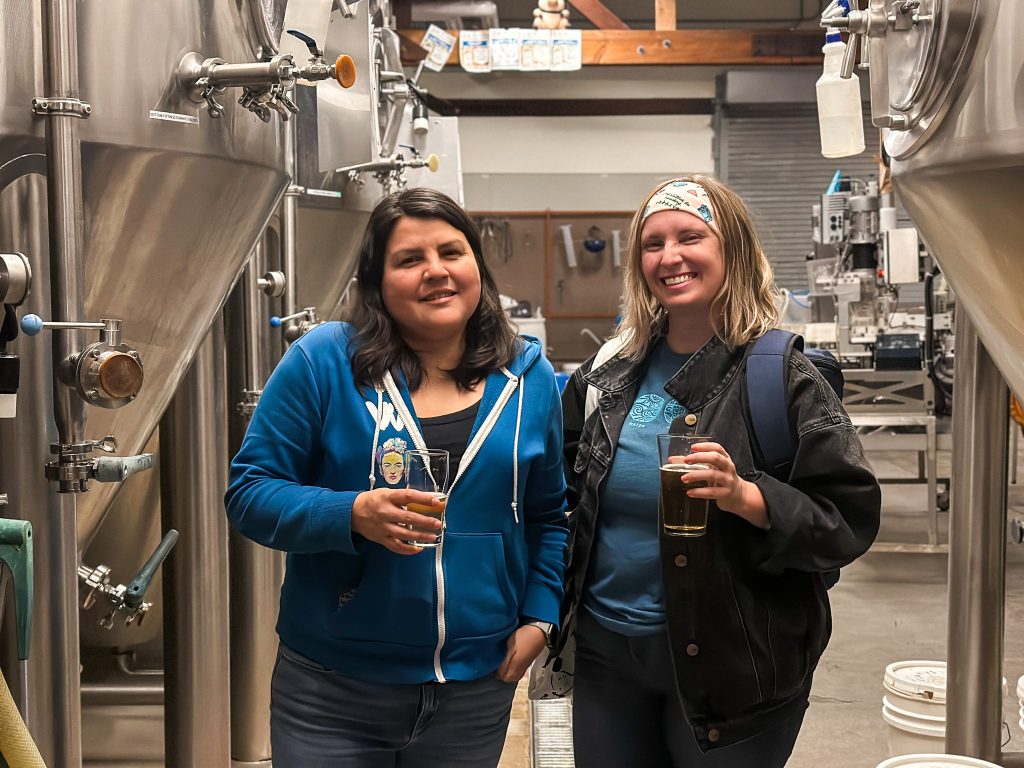
HOPPED: Obviously the beer industry is still white male dominated. How is Pink Boots working to make the industry more welcoming to women, people of color, and non-binary individuals?
BLANCA: Most people who work in this field, whether as brewers, taproom managers, marketing people, don’t have a specific DEI lens. So a couple of years ago we created a committee dedicated to this issue and I was a part of that. We have been working to create and find resources for everyone. We are working with a consultant and she has been amazing – we know we’re not specialists and we didn’t go to school for this, so it has been great to work with someone who has this expertise.
HOPPED: What type of resources does Pink Boots provide its members?
BLANCA: One of the big things we offer is scholarship programs. We have ones to go to the Pink Boots Conference, and we have another really cool one that we do in conjunction with Yakima Chief Hops where we had a certain number of seats for people to go and be a part of the hop harvest.
Outside of scholarships, we have different education opportunities. We did a bystander intervention training with Right To Be which was open to the entire membership. Plus each chapter works on its own set of resources and we support that. The Boston chapter is doing a self-defense class. All of the chapters do these creative things and we try to find out other ways we can help them provide for their members. There are a lot of different things that we can try to do, but we’re limited because it has to be educational – that’s the mandate of Pink Boots.
HOPPED: What resources or programs can be implemented in breweries to make them a safer space for employees and patrons?
BLANCA: Because a lot of these businesses are small, one big issue is that if there is an issue in your workplace there is no separate HR department and you have to go to your boss. It’s somebody that’s too close and isn’t a degree of separation. That’s where all these incidents tend to happen where people are like, “Oh, it’s not a big deal. You’re making something out of nothing,” and it’s a slippery slope because then the employee doesn’t feel that they have that protection so they stay quiet.
The beer industry is seen as a community-based industry, and you think everything’s fine in your community and we are kind to each other. In reality, people are still people. There are still issues. What you need in a business setting is some sort of structure where you protect your people. A lot of breweries don’t have a code of conduct in place, which is something Brave Noise raised on a national level.
HOPPED: In an industry where people are feeling the economic aftereffects of the pandemic, how can you get breweries to invest in this type of training and resources?
BLANCA: When you’re talking about other programming and thinking “I don’t have the money for that,” you can look at things to do that don’t cost money. It doesn’t cost money to have a code of conduct.
Right to Be has free bystander training and de-escalation training, 30 minutes online. It doesn’t cost you anything. There are other resources, like the Not Me app, which is free and something that people can use to report shady business behavior. The Brewer’s Association has a ton of resources on diversity, equity, inclusion, and justice. If your brewery is already a member – and most are – you can get access to free resources. But the reality is some things may cost money. However, if you really want to have a safe space for your team, and for your guests, you’ll take the time and resources to build that out. And it’s not something that’s going to put you under to invest in these resources.
HOPPED: Are there any specific Pink Boots events coming up in Los Angeles?
BLANCA: This year we are going to have a Pink Boots Festival in LA on April 15 at Frogtown, where 15-20 local breweries will be able to show off the beers brewed for their collaboration brew day. Each year we pick a specific blend of hops, and this year it’s Loral, Ekuanot, and HBC 586. When breweries purchase the hop, part of the proceeds go to Pink Boots National, and then if you brew the beer sometimes people donate part of the proceeds to their local chapter.
Last year, Pink Boots National got a check of around $135,000 to go towards our scholarship programs, and our local chapter received around $10,000. This year, part of the proceeds from the festival will go back to support the local chapter. We are also hoping to have some educational panels at the event. Another thing that is super cool is that homebrewers can purchase these hops and make a Pink Boots homebrew!
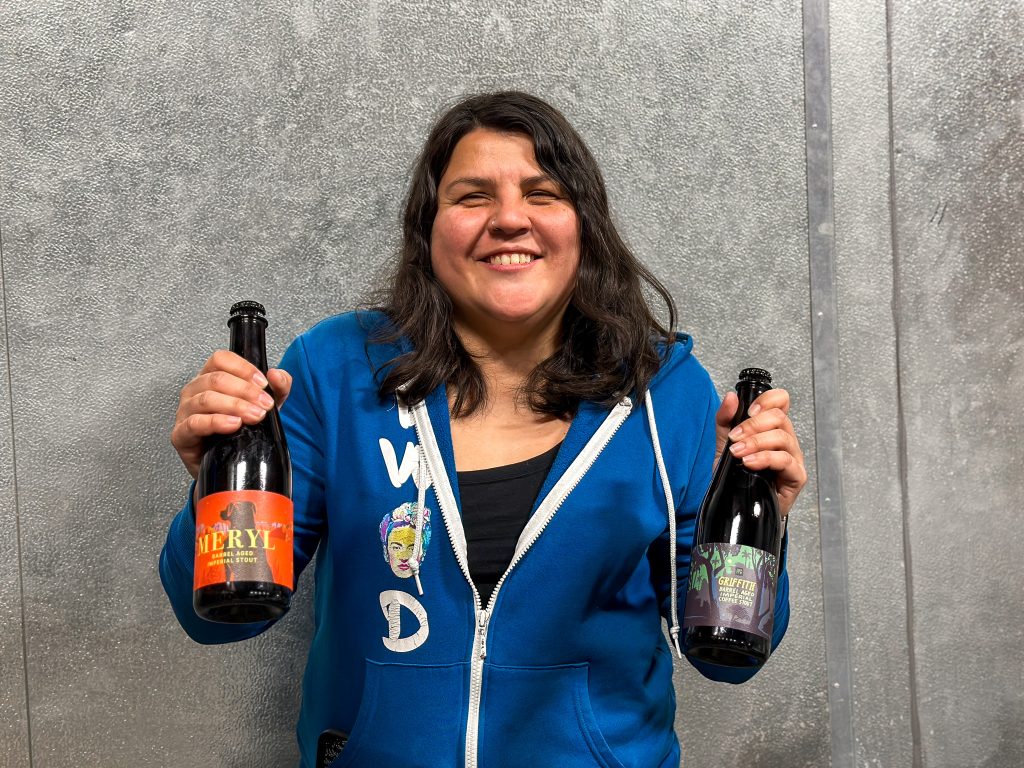
HOPPED: Can you tell us about some of the multicultural work you are doing in the beer industry?
BLANCA: In October, I went to a women’s meet-up conference within a Beer Expo in Mexico City. It was great because it was different women from around Mexico and Colombia talking about building a business and how to get your brewery off the ground. They did a sensory analysis as well as a gender and sexuality training as well, which is super cool.
I wanted to go because Pink Boots doesn’t really have a footprint in Latin America. Pink Boots is in Spain, France, Australia, New Zealand, Canada. So I’m like, “why isn’t there one in Mexico?” We are right across the border. So I started following a lot of these different groups on social media. There was a Brew Day that happened in February in Baja California with the American Consulate which is supposed to be a fundraiser for women in STEAM (science, technology, engineering, arts, and mathematics).
What’s really cool about this kind of cross-cultural thing is, at least for myself because I am Mexican-American, it’s going back to people that are of my heritage and doing this kind of work. It’s really amazing to see that because of the lack of diversity within the beer industry, to be surrounded by women that are of the same background as myself, and it’s really enriching. I have been working with a couple of gals in Panama and Peru to start a Pink Boots Latin American, so we’re in the process of shooting some videos. My Vice President for Pink Boots, Georgina, lives in Houston but was born in Mexico. So together we’re able to build this bridge, because we speak the same language and have a similar heritage to these women.
I’m also on a WhatsApp chat with women in Latin America and Spain trying to join forces to build a code of conduct for beer festivals. I’ve learned about the misogyny and sexism that these female brewers are facing in Latin America, and how they are joining together and building resources, but they need more support. That’s where I think Pink Boots can be helpful. It’s a lot of work because of the time differences and language barriers, but they are really excited to put things into motion and just get basic Cicerone resources. For example, the Cicerone Beer Server program is available in Spanish, but I am not sure how many technical resources have been translated.
As somebody who learned Spanish from my parents, if I see technical beer jargon in Spanish, it’s overwhelming because I didn’t have that formal education. I mean, even if I think back to my beer education, studying for my Cicerone in English, it was very challenging. So I can’t even imagine learning the technical aspect in a different language. One of my favorite cartoonists, Em Sauter (@pintsandpanels), is working on translating her recent beer education book into Spanish and she has some other resources in Spanish as well.
HOPPED: What are some of the differences you have seen in your multicultural work?
BLANCA: I think one of the biggest differences between the US craft beer scene and everywhere else, especially Europe, is that in a lot of places brewing is a generational thing. You’re learning this trait from your father, your mother, or the church. It’s not very accessible to everyone else. I feel like it’d be super crazy to try to break into the lambic scene in Belgium, you know? So, when you think of the States, our heritage comes from Budweiser and German and Austrian immigrants. And even when they came here, a lot of times you saw this brewery business where their kids took over.
So when people broke away and started making their own beer, it became super gate-keepy. You have to be educated in this way, you have to be a certified beer judge to have an opinion on these, you have to be a Cicerone. But over the past 40 years or so craft beer has just kept growing and growing. This type of gatekeeping came as an opposite reaction to what was the traditional case of breweries being family businesses. Now we have all these accolades for what makes a good beer or someone being educated in beer, but it comes from a rigorous structure system, which still excludes a lot of people.
There is so much gatekeeping to open your own brewery. You have to have like 10 years of experience putting in the work, doing crazy finances, having capital. Bob, who is the owner here, originally opened up with a small-time system to get to where we are now, and it was a work in progress. You need to have the resources and the timing has to be right for the buildings and equipment. Obviously now we’re seeing a lot of turnover in the beer world because of it. It’s fascinating when you look at Latin America, which doesn’t have a huge history of local craft beer. If you’re starting as a craft brewer, you’re starting from scratch and don’t have the resources or the money for things like fresh hops. There is a huge barrier there in terms of ingredients and costs, plus things like water chemistry.
The gatekeeping itself is incredibly challenging, but it makes it doubly challenging for women and minorities who don’t have that built-in history and capital or haven’t worked for 10 years at a national brewery to be able to open their own brewery. Plus just the difficulty of being a person of color, or being a woman, or being non-binary and entering the industry. You are probably going to have to start at the ground and work your way up. But it’s even difficult to get those entry-level jobs.
It’s the microaggressions that happen in the workplace which we kind of brush off where it’s like, you’re not thought to be the brewer, you’re not thought to be the manager, you’re not thought to be the owner. You know, you’re like, “Oh, it’s obviously not you because of what you look like.” And that causes this reaction where either you want to leave the industry as a whole, or you want to work twice as hard to prove them wrong. But it’s the fact that you have to do more to be respected where someone can do way less and just fit the part based on how they look.
HOPPED: What do you think the next difficult conversation in beer is going to be?
BLANCA: Sustainability has been at the top of my mind. Hops are a commodity, so how are you going to handle them as they become more scarce? The next challenge is also with water, or climate change. Hops and grain catch on fire, or even if there is a fire nearby, the smoke affects the end flavor of the beer depending on ingredients. What is the sustainability of future beer ingredients? Plus, economically, a recession will affect people’s ability to spend money, and I think we are on the precipice of that. While inclusivity is a huge thing the industry is working on, we are tiptoeing around issues like sustainability, so I think that will be a difficult conversation that is on the rise in our industry.
HOPPED: What is your advice to someone to just make the space that’s getting better, but obviously is not what it could be, a safer, more inclusive environment?
BLANCA: Don’t be an asshole. It doesn’t take a lot for you to be more aware of being an ally. If you hear someone being mistreated and you feel safe to do so, step in and do something about it. Be aware of how you’re speaking to people. It’s not hard to just try to be kind. I think sometimes people get so caught up in their own world, they don’t see how it’s impacting other people. Reel it in. Just be aware of how you’re talking to your fellow person. Don’t assume things about people whether that be their religion, their ethnicity, their gender, because that causes more harm. There’s no space for that.
The first Annual Pink Boots Festival will take place at Frogtown Brewery in Frogtown Los Angeles on Saturday, April 15th. Tickets are available [here].
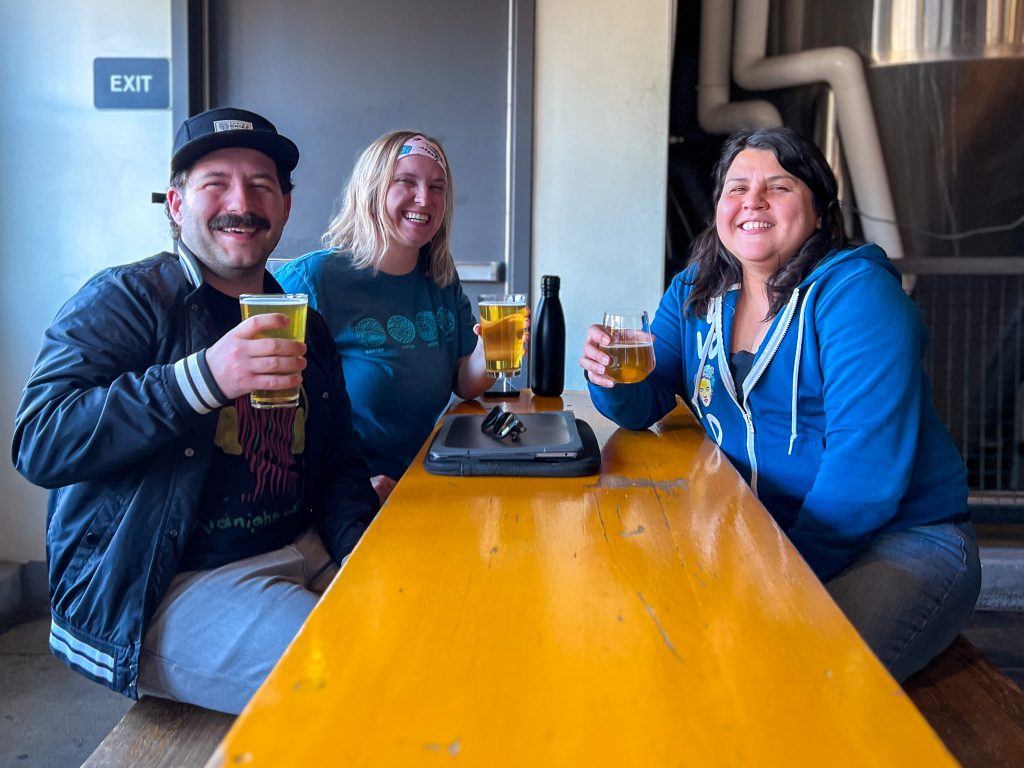
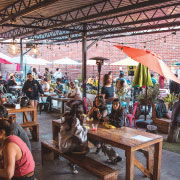
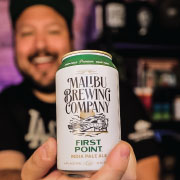
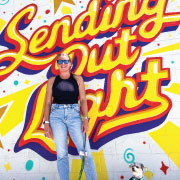
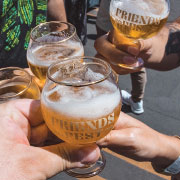
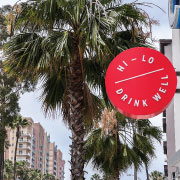
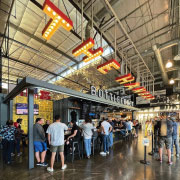
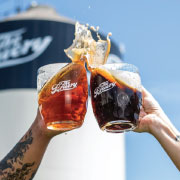
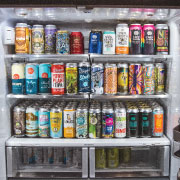
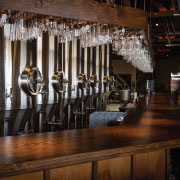
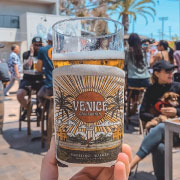
 Cambria Findley-Grubb
Cambria Findley-Grubb Mark Smolyar
Mark Smolyar